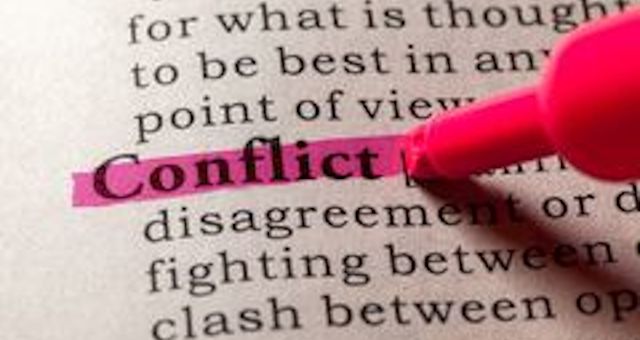
The “Stonewaller” and “Lid-Flipper”
Your Relationship- Everybody’s Relationship
Every single relationship has one of these responses to conflict or other negative interactions between the couple. Before jumping in, let’s define each.
The Stonewaller
You get into a conversation and your partner just seems to “go dark” and shut down and doesn’t give you anything at all. This is what is called “stonewalling.” When one person begins stonewalling, usually they are physiologically flooded (mentally / emotionally overwhelmed and overstimulated), which has a number of indicators: increased heart rate, the release of stress hormones into the bloodstream, and even a fight-or-flight response. When that happens, it is impossible to continue the discussion or take in the others perspective; you’re too physiologically agitated to do so.
The Lid-Flipper
Similar to the stonewaller, the lid-flipper become physiologically flooded (overwhelmed). However, instead of the inability to continue the dialogue, the lid-flipper enters into the “fight” mode of fight, flight or freeze. This is the same physiological flooding that occurs with a stonewaller, but with a different, more outward reaction. This usually consist of asking a lot of questions, lecturing, making observations and providing many facts and statements to their partner. It won’t matter where the partner goes or what the partner does, the conversation is going to happen right then and there.
Some Scenarios
Couple #1 – This couple is like 80+% of the population. One person shuts down, the other pursues. Dr. Sue Johnson calls this interaction “The Protest Polka.” Typically, in a relationship, there is one person who has all of the words right away and they pursue, while the other doesn’t quite know what to do or say when they are overwhelmed, so they shut down. Both reactions trigger the other’s responses and perpetuates the cycle.
Couple #2 – This couple both have the “fight” or pursue response when it comes to conflict. Sue Johnson’s name for this is the “Find the Bad Guy.” The couple both have all of the words and defenses ready and they are quick to defend themselves and cast blame on the other claiming the other is at fault for the fight or “the bad guy.”
Couple #3 – A lot of people just simply like to avoid conflict all together. Being conflict averse (or anything negative) is not uncommon, but when partners share that same sentiment, there are many conversations or issues that are never addressed due to their avoidance. This couple may not have a ton of outward negativity toward each other, but the inability to address issues can create some (unspoken) lingering resentment and/or create a home environment that does not include much friendship, intimacy, emotional connection or positivity.
So, What Do We Do??
Put concisely, couple #2 requires some serious ground rules or expectations for their conflict discussions and commit to practicing and implementing those skills. Couple #3 needs to explore why they are so conflict averse and understand that conflict management is a normal and healthy part of every relationship (fighting is not).
I’ll spend more time on couple #1. Since couple one is the majority of couples out there, it is important to know what to do and say (or not do and what not to say).
Stonewalling and Cold Shoulder
Stonewalling is a natural coping response to the perception of danger, but it is not a reaction intentionally trying to provoke the other partner.
It definitely is not a cue to talk louder or push harder.
It’s important to understand when someone is stonewalling (physiological response) vs. giving the cold shoulder (intentional / manipulative response). Stonewalling, as mentioned above, is the inability to take in someone’s perspective. They are overwhelmed intellectually, emotionally, physically, etc. This may be someone without a very large capacity for emotional conversations or someone who grew up in a home riddled with terrible fighting and abuse. On the other hand, giving the cold shoulder is a direct attempt to “freeze out” the other person and manipulate the direction of the conversation or end the conversation completely.
The Plan
To the “lid-flipper” – the most important thing to consider is your pursuit triggers the stonewallers response. If your partner tends to shut down quickly when the conversation begins to take a more conflictual turn, the response is not to lean in more to him or her. The best course of action is to give space for them to process on their own and then come back to the conversation on their own. Help your partner explore their response to conflict so that you understand and ultimately honor the process and begin to implement a new approach to conflict.
“But they NEVER come back to the conversation, Logan!”
I hear you and I completely understand. Which leads…
To the “Stonewaller” – Whatever the reason for your dislike for conflict, it is important to explore the reasons why you respond in such a way. It is also important for your partner to understand why this is your response as well. It is crucial to take a break when you need it, however, when you have had the break – come back to the conversation or come up with a plan with your partner when you can have the conversation.
Ultimately, it is important to establish new standards and expectations for your conversations and conflict discussions. The most important component would be to provide safety for each other. Ask yourself this question:
Am I creating a safe haven for my partner to be and feel safe even in the most vulnerable positions?
Will you still run into snags and revert back to old pattens? Probably. However, you do not have to stay there. Work as a team and remember that we play a major role in our partner productively participating in the conversation.
